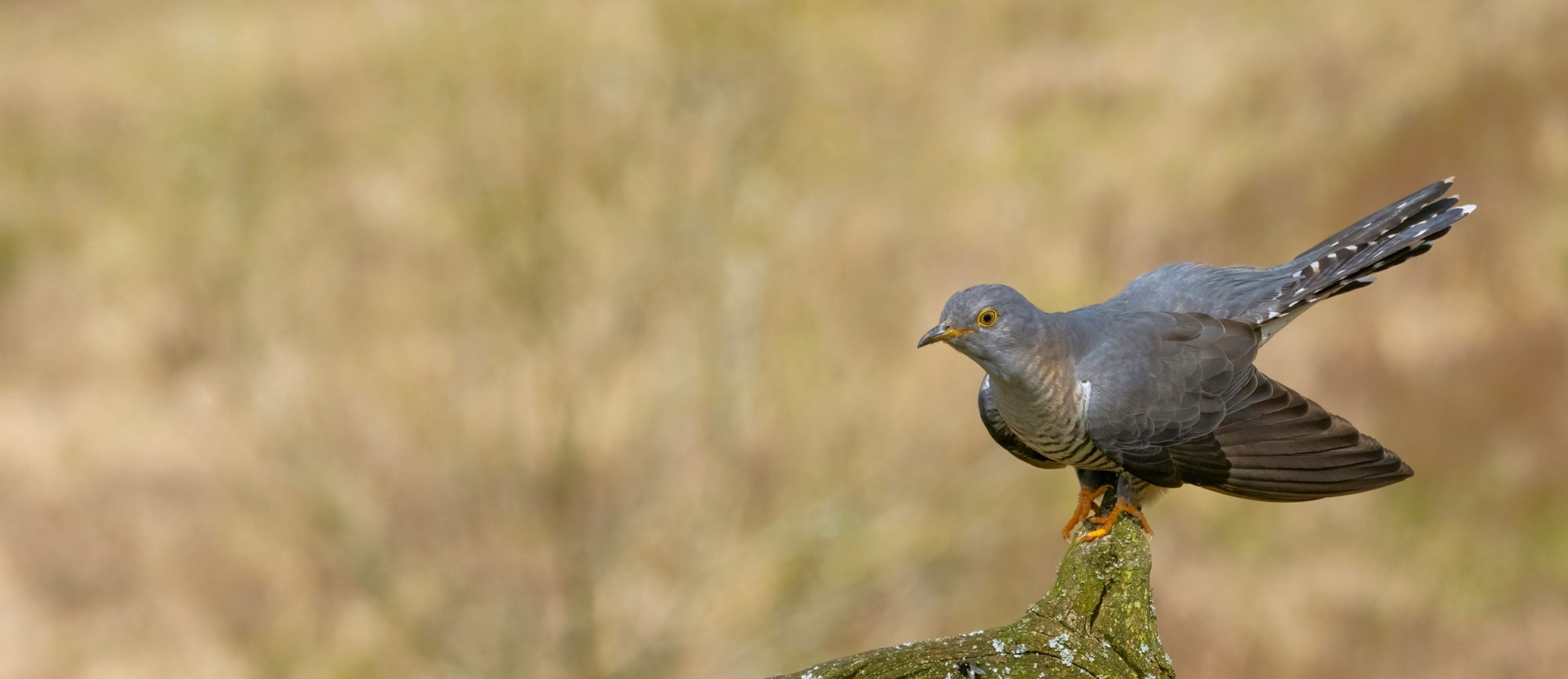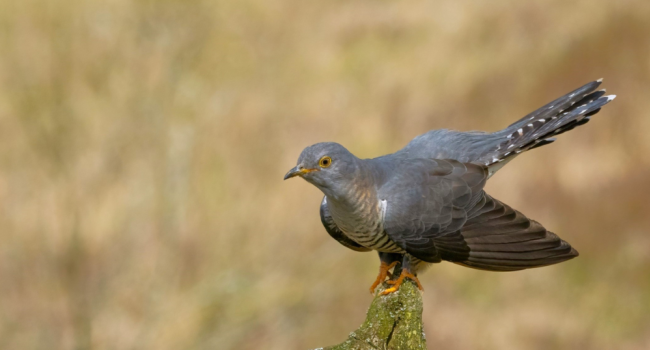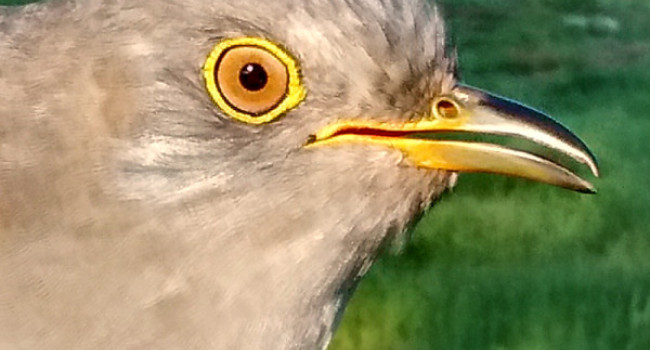Since the early hours of the 7 August, Coo has continued on his desert crossing, covering a further 800km (500 miles) to reach the semi-arid Sahel region of central Chad. Here there will be opportunities to rest and feed up in the grassland and savanna, with occasional areas of woodland and shrubland. He is the sixth Cuckoo to successfully complete the desert crossing.
Updates from our Cuckoos
Read the latest updates from our Cuckoos on their epic migration between the UK and tropical Africa, or track their movements in real-time on our Cuckoo migration map.
- If you enjoy these updates, please consider sponsoring a Cuckoo. Sponsors receive special updates about their chosen Cuckoo in the Cuckoo e-newsletter.
Coo completes desert crossing
Coo arrives in Africa
Coo has been very quiet for sometime and we did wonder where he was but his tag sent a reliable signal yesterday helping us pinpoint him in the Libyan desert approaching the border between Libya and Chad.
Peckham moves south
Peckham had us worried there for a moment before delighting us when his tag sent a signal on 7 August, showing he has travelled south a further 370km (230 miles) into Chad. He still faces many challenges so lets hope he arrives safely in the central Sahel region.
Vigilamus reaches dense forest
Vigilamus has moved 150km (90 miles) south within Chad finally reaching dense forest. He will being looking forward to some rest and foraging after his desert adventure.
Charlie heads to Greek island
Charlie has left Italy and travelled southwest 345km (213 miles) to Lefkada, a Greek island in the Ionian Sea on the west coast of Greece.
Peckham still in desert
Peckham has remained in the desert in Chad since his tag first transmitted from there on 1 August. We were quite worried that he may have persished while trying to cross however a quick look at the recent weather conditions in his location in the Tibesti Mountains revealed that the area has had about half an inch of rain in the last week! This may explain why he has stopped there, in what would normally be a rather strange move for any of our Cuckoos. Hopefully he continues onwards shorlty and makes it successfully to south of the Sahara!
Peckham arrives in Chad
Peckham has left Italy, flown over the Mediterranean and arrived in Africa. Passing through Libya he completed a journey of 1900 kilometres (1,175 miles) to reach northern Chad, arriving near the Emi Koussi volcano. He still has a way to go to complete his desert crossing and reach a location in southern Chad where he can rest and refuel safely.
Derek is in Morocco!
Derek left Spain and arrived in Morocco, covering a distance of 800 kilometres (500 miles) passing east of the Gibraltar strait. Derek is taking once again taking the westerly route that we have seen him use in previous years and, interestingly, that only English Cuckoos seem to use. So far no Scottish or Welsh birds have ventured through Spain, although it's worth noting that fewer birds from these areas have been tagged compared to English Cuckoos. In some years, this route has proved problematic, with wild fires, droughts and storms providing challenges for the Cuckoos choosing this route.
David moves south slowly
David is on the path south not too far from his last position in Bosnia. He flew 210 kilometres (130 miles), returning once again to western Montenegro, as in previous years, and resting near the Lovcen National Park. The earliest we have received transmissions from Africa from David's tag in the other years of the project is the 4 August and the latest the 25 August so we expect that he will spend a few weeks in the area, unless he is already well-fueled for the journey.
Sad news of Chester
We now believe that Chester, tagged in spring 2014, died whilst still in the UK this summer. The last signal was received on the 4 June and none have been received since. Chester dying on the breeding grounds is unusual and this is the first time that we have seen this for a bird that has already been tracked on one migration. It could perhaps be a knock on effect of the cold wet summer we have experienced. In 2012 we saw a similar effect.





Share this page